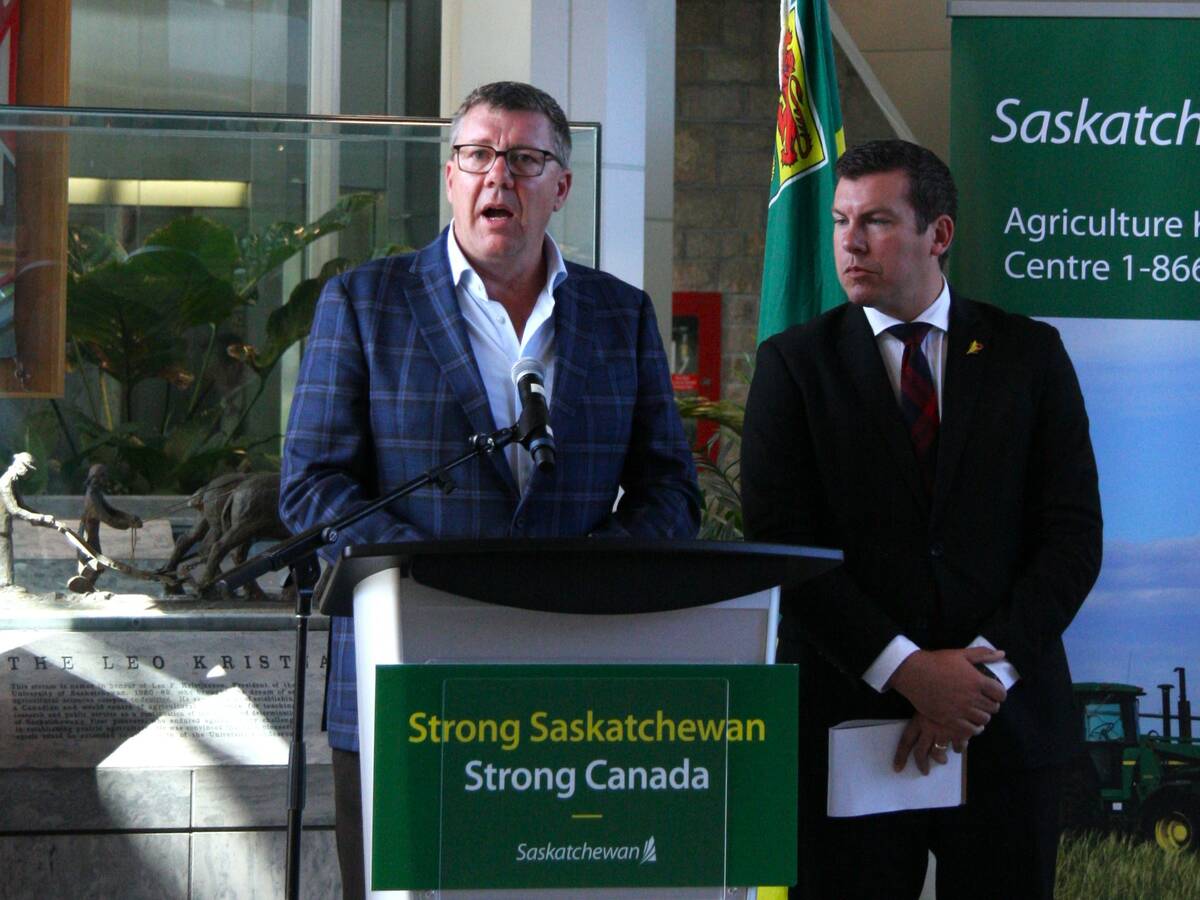VICTORIA – When the Canadian government hammers out its trade policy before the next round of world trade talks in 1999, it won’t be able to plead ignorance about what farmers want, says the Canadian Federation of Agriculture.
Delegates representing the industry’s commodity groups, regional interests and provincial farm organizations surprised even themselves by coming up with a trade policy that identifies common ground without selling out one commodity for another.
It is a position the government will find difficult to ignore, said CFA president Jack Wilkinson at the federation’s annual meeting Feb. 26 in Victoria.
Read Also

Key actions identified to address canola tariffs
Federal and Saskatchewan governments discuss next steps with industry on Chinese tariffs
“We moved a long ways on the trade policy here in comparison to what it looked like was going to happen,” Wilkinson said in a interview after the meeting.
“The common goal always around CFA, in particular in trade policy, is that we’re better working as a group than we are individually.
“When everybody decides they’re going to cut it up into their own pieces and start lobbying the minister, maybe someone thinks they’re going to win a little but it just doesn’t work.”
Bob Friesen, second vice-president of the federation and chair of the Canadian Turkey Marketing Agency, described the policy process as an exercise in compromise. It stops just short of specifics while focussing on fundamental issues shared by members, he said.
Give and take
Wilkinson said that doesn’t mean the federation has a watered-down position on trade. Compromise was required to reach a solid statement that reflects the widespread needs of agriculture in Canada, he said.
“I don’t accept that it’s watered down but I would say (CFA) is trying not to have winners and losers but trying to reflect the differences that exist in Canadian agriculture and deal with it honestly and realistically.”
The new policy statement says “CFA believes the fundamental market access goal should be to achieve the maximum possible access for agricultural exports, with due regard for the need to maintain our domestic interests and orderly marketing structures.”
Wilkinson also rejected suggestions that Canada’s agricultural trade policy is at odds with domestic policy.
“If you’re going to look for a hypocrite there’s one across the border. At the same time they’re telling us what cuts we have to do in relation to domestic and export subsidies, they’ve got the richest farm bill they’ve ever had in the history of the United States being passed.
“Nobody’s got the high ground here so we should not be the least bit apologetic.”
















